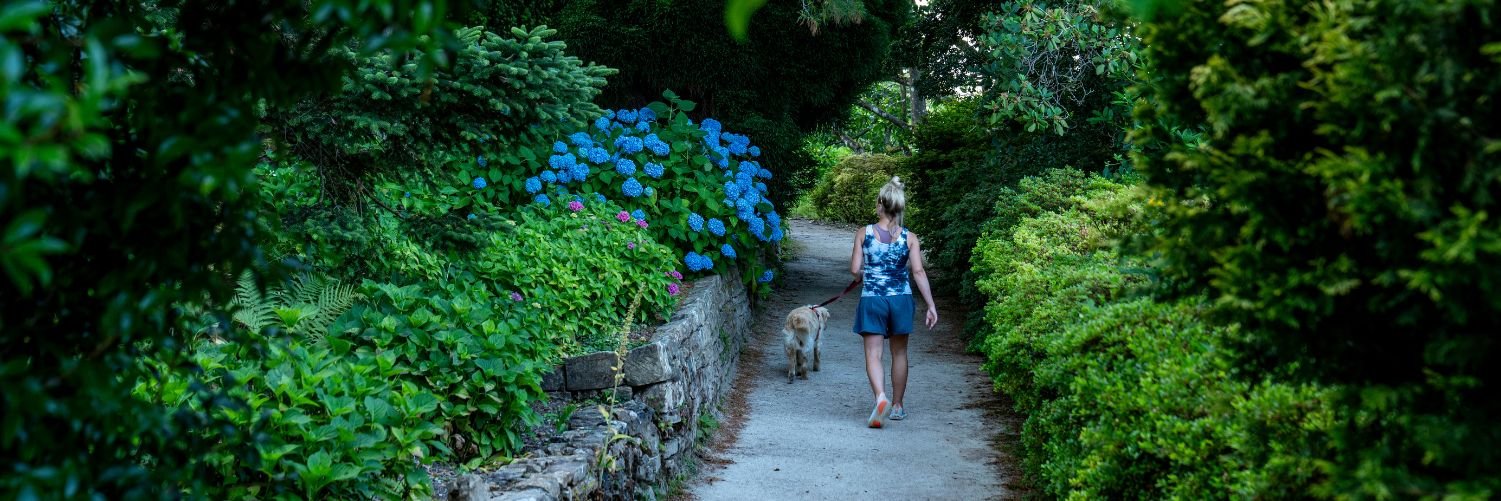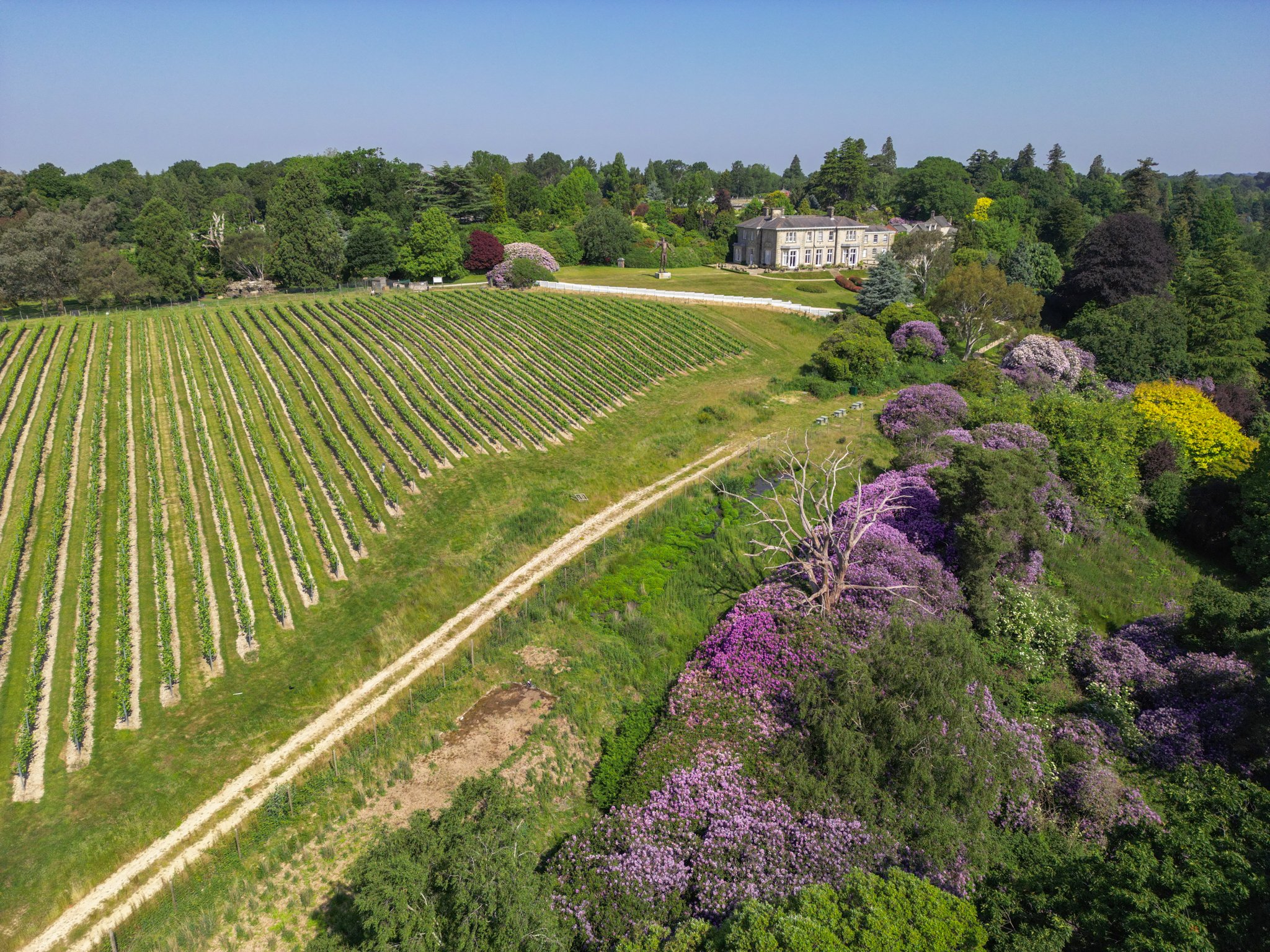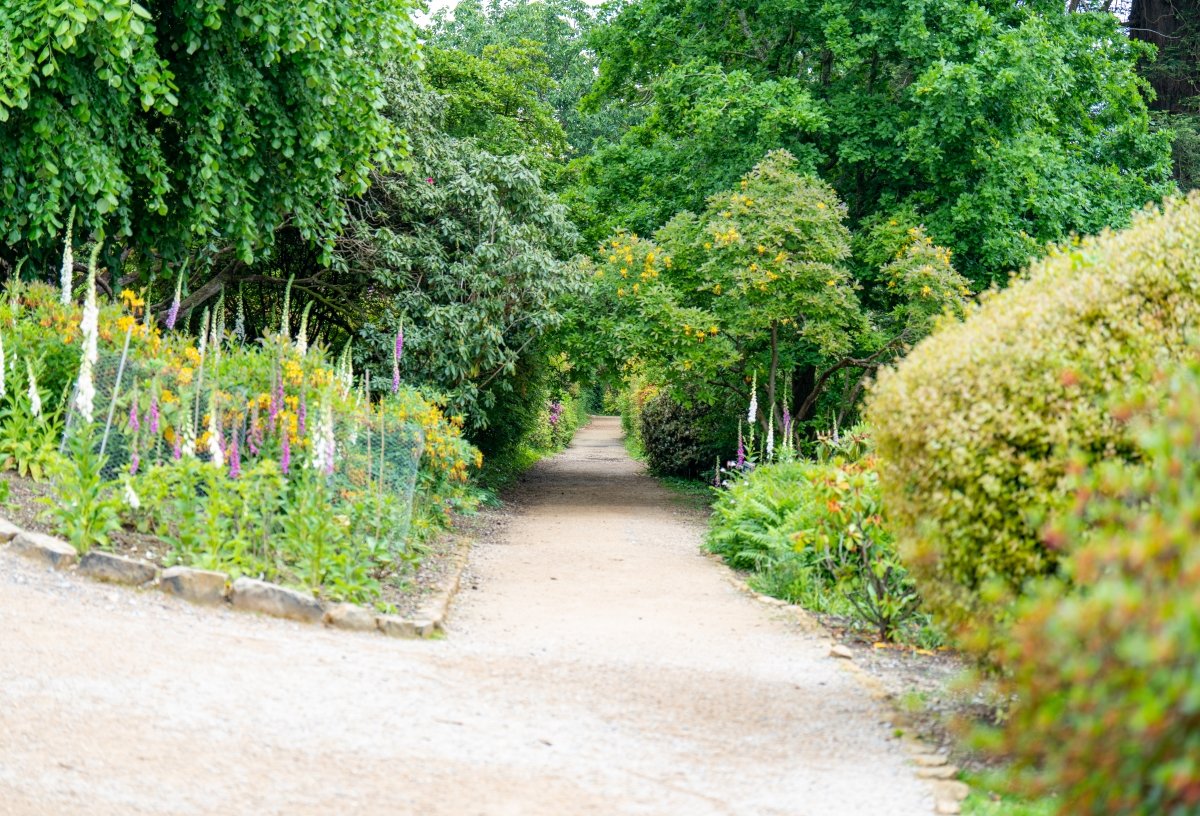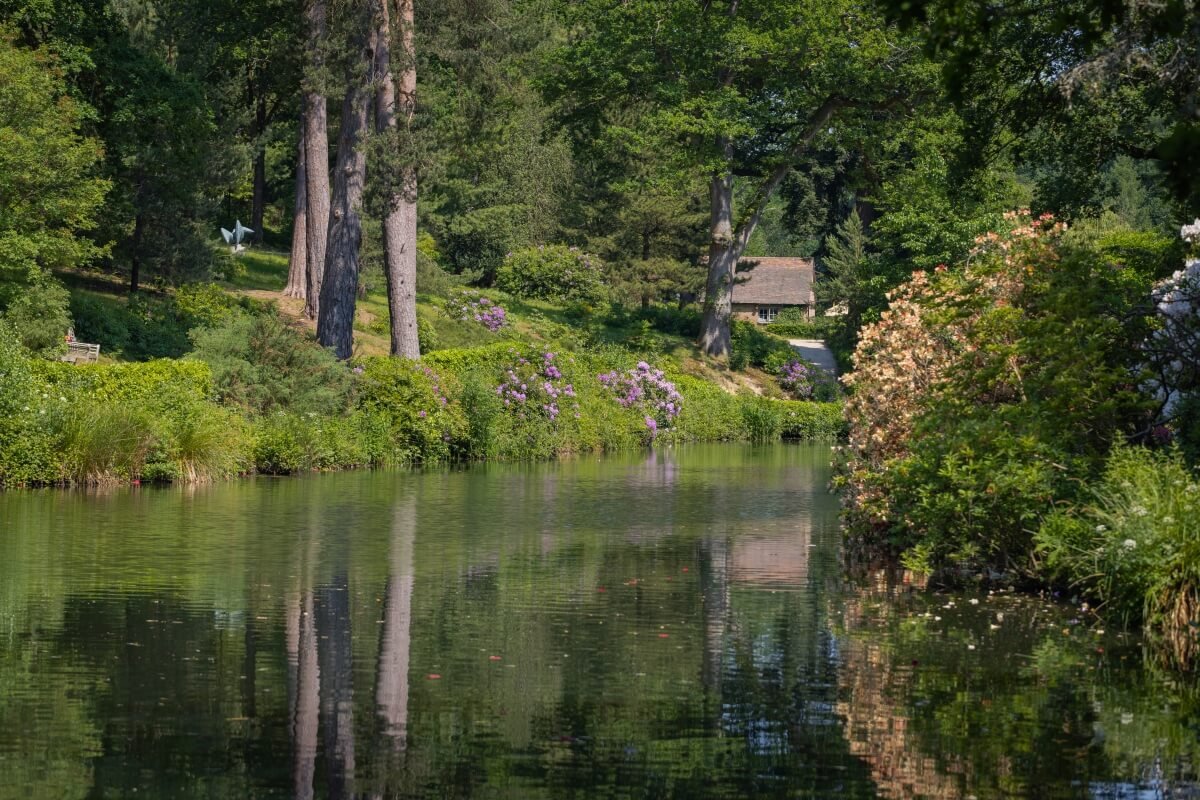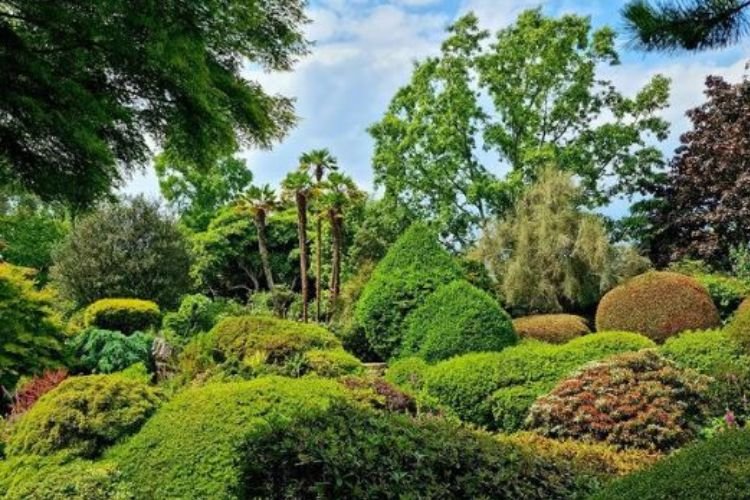Garden News | August
Although Leonardslee is a woodland garden and our feature season is often therefore considered to be Spring, for many people there cannot be a better time to sit in or wander around a garden such as Leonardslee and enjoy everything it has to offer than the height of Summer. You’ll find so much to see and do here during August. From the sights and smells of the new floral displays around the Mansion and Rock garden areas, to the stunning views across and out of the estate that we continue to re-open, or the glimpses and sounds of busy insects buzzing and flitting around the lakes, August is a fantastic time to take it all in.
July was a mixed month in terms of weather here. We had very hot days, thunder storms and high winds, all within the space of a month. Apparently the long range forecast is for August to be a hot one, as it should be at this time of year I suppose. Speaking from the perspective of a gardener, to be honest you could argue we could do with some rain for the plants but I know much our visitors will enjoy a prolonged spell of sunshine! Last month I talked about how some of our delicate plants would need to take on extra water as the temperatures began to rise. Well, people sometimes also need some respite from the heat when enjoying the garden too, and Leonardslee is blessed with plenty of shady spots to escape the heat. You could wander through Camellia Walk near Leonardslee House with its collection of 100+ year old specimens that were planted by Sir Edmund Loder, or Camellia Grove down near the lakes that was planted in the 1950’s by his Grandson Sir Giles Loder for instance. We’ve been busy here in previous months continuing our phased approach of restoration pruning in this part of the garden. Many of the Camellias had grown so tall that the flowers were well above eye and nose level. We therefore chose a couple of section of the grove to hard prune some of the specimens this year. This may look quite drastic now, and we will no doubt lose their flowers for a year or two, but in the long term it will be very positive for the plants and our visitors. Whenever we do this hard pruning work we always make sure we water, feed and mulch the plant in question immediately afterwards as it can be stressful for them. For the Camellias we use an organic ericaceous granular feed together with bracken mulch sourced from the New Forest. We also had to fell a large old dead Scot’s Pine here last month. As well as making the area is safe, this has had the added bonus of opening up that corner of Camellia Grove to allow more light in for new shoots to regenerate.
There are also plenty of shaded paths running from the upper gardens northwards to the Dell too. But if you’re feeling a bit more energetic you might want to check out the Top Garden on the north east side of Clapper Pond, just up from the beehives. Although previously referred to as The Ancient Woodland, the whole garden at Leonardslee is actually designated as “replanted ancient woodland” so this area to the north east of the lakes is no more ancient than the rest of the garden and we are now referring to it as The Top Garden, as the Loder family once did. A secluded, shady woodland area, The Top Garden was also the original site of the Pinetum, planted by Sir Edmund between 1901 and 1905, but was lost in the 1987 storm. The current Pinetum in the Deer Park was planted exactly 100 years after the original by Robin Loder, the last member of the family to own the estate. We opened up the first phase of the Top Garden in 2021 year and then added a small section just inside the main gate to the north where we uncovered some interesting forgotten Rhododendrons and a few remaining conifers from the original Pinetum. Our team of tree surgeons and gardeners are now working on the next phase down in the valley to the east of the Coronation Garden – this area is historically referred to as Hillside Garden. Once completed this will join up with the eastside lake walk. I’ll keep you posted as to when this is ready to explore and enjoy. It’s been a fantastic year for flowering trees and shrubs generally, but our Hydrangeas are particularly doing themselves proud – in fact it looks like being the best year for their floral display since I’ve been here at Leonardslee. Some of that might be due to the weather – last Summer’s high temperatures followed by a very cold spell in Winter and sandwiched by a wet Autumn and early Spring seems to have helped many of the hardy plants here. However, we also pruned them all slightly differently too this year.
We strayed from the advised method as well as our own previous experience with working with Hydrangeas, and instead only pruned them back to the top fat buds rather than down to the lowest double set as is usual. This was done back in March and April and was swiftly followed by a good organic feed and mulch. Either way, it seems to have worked! Some of the Mophead (or Hortensia) types may well be tailing off in August but the Lacecap and paniculata specimens usually flower for a little longer into Summer. You’ll find our Hydrangeas in many shades of pink, purple and white near the visitor entrance building, around the Rock Garden and below the Clocktower Cafe for example. However, we have plans afoot to plant a lot more unusual Hydrangeas over the coming years in some of the further areas around the lakes to really boost the Summer interest there, so watch this space for more details.
As you wander around the top areas of the garden at the moment you’ll spot plenty of interesting new flowers and foliage to admire. Our displays around the house and in the Herbaceous Beds opposite are into their second year now so should be really filling out as Summer develops. We lost a few choice specimens in the harsh Winter spell when temperatures didn’t get above freezing for several weeks (such as all of our treasured Echium pininana plants and some of our Salvia for instance) but some of the highlights to look out for will include the purple and orange exotic scheme around the south and east sides of the mansion where the likes of Ensete ventricosum ‘Maurelii’ (Abyssinian Banana) and Physocarpus opulifolius ‘Amber Jubilee’ (Ninebark Shrub) will be drawing attention along with purple-leaved Canna and annual Castor Oil Plants. Around the outskirts of the Rock Garden opposite the house look out for the likes of some interesting Amicia zygomeris, a non-invasive Acanthus mollis called ‘Rue Leden’, the frothy foliage of bronze fennel and Hedychium gardnerianum, also known as the Kahili Ginger plant to name but a few. One of my garden team, Dan, has also been creating some fantastic container and hanging basket displays around the cafes and welcome areas this year and they will be a riot of colour and form throughout the whole Summer so make sure you check those out too.
Aside from the usual Summer cycle of mowing, edging, strimming and weeding, another key job for the garden team this month will be to get on top of some of our unwanted plants around the garden such as brambles, bracken and Rhododendron ponticum. Unchecked, bracken can take over an area so we’ll be strimming and pulling it where we can. Rhododendron ponticum is an invasive plant that was originally introduced into the UK as an ornamental back in the 1700’s but is now recognised as a thug as well as a vector for one of the nastiest garden diseases, Phytophthora ramorum. You are not allowed to sell it or plant it and landowners are encouraged to reduce its spread. We will be removing it where we can but this will take many years in a phased process.
So, as always, lots to see and do in the garden here at Leonardslee. There is something new to stumble upon somewhere every day so get out there and explore! Elliot from my team will be leading a Tree Walk on August 16th and a Wildflower Walk on the 25th for instance. I look forward to seeing you here during July…
Jamie Harris, Head Gardener

